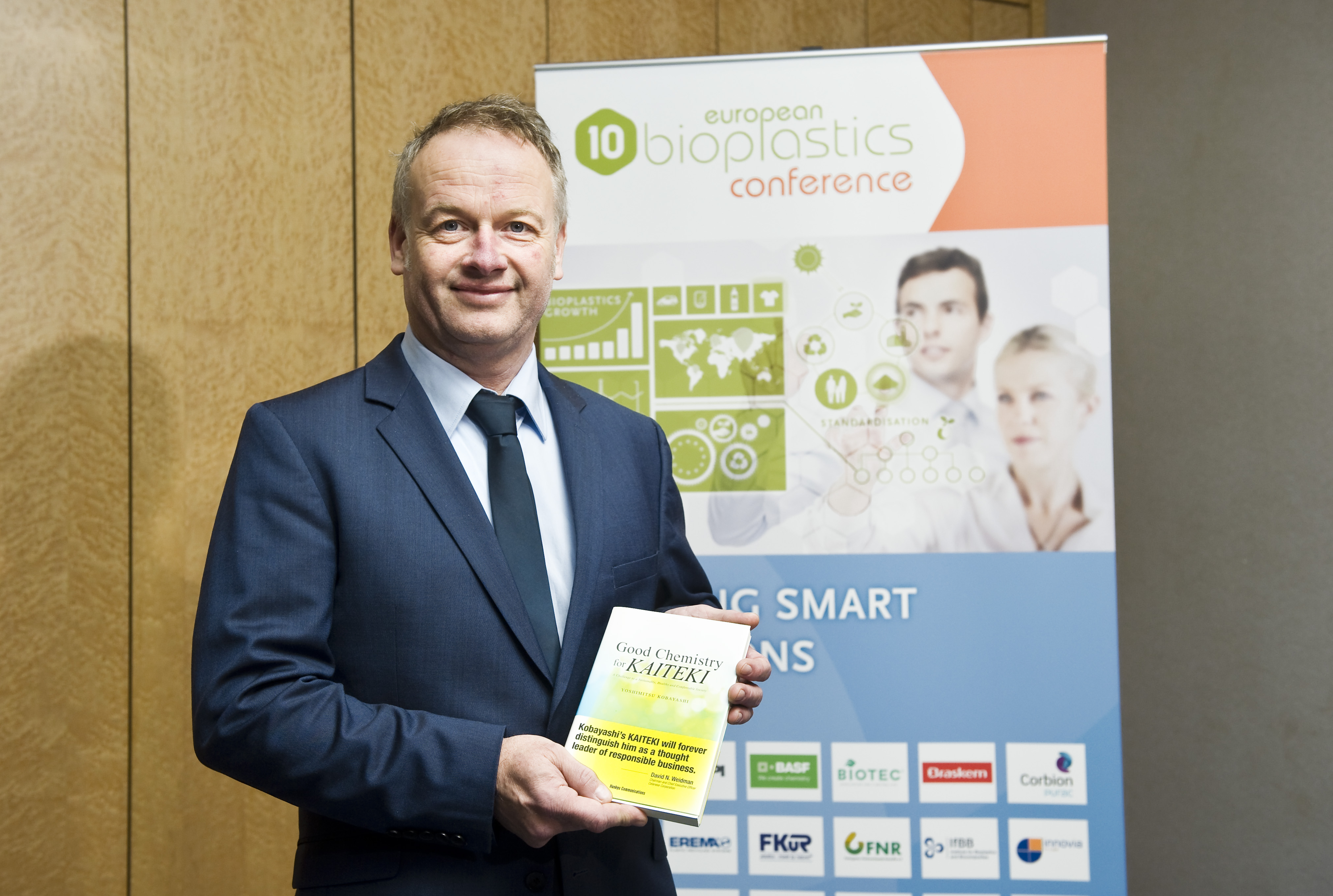Mitsubishi Chemicals recently received the Global Bioplastics Award for the use of their biobased engineering plastic DURABIO™ in the front panel of Sharp’s new smartphone, marking the first time a biobased plastic has been used in the front panel of any smartphone. European Bioplastics spoke to Frank Steinbrecher, Technical Manager at Mitsubishi Chemical Performance Polymers Europe (MCPP) to find out what sets the company apart from its competitors.
“KAITEKI is Japanese for ‘comfort’, yet, for Mitsubishi Chemicals, the word has a much broader, much deeper meaning”, explains Steinbrecher. The former CEO of Mitsubishi Chemical Holdings Corp. and today’s Board Chairman, Dr Kobayashi, created a philosophy and whole new value system for corporate responsibility around this term. KAITEKI can contribute to making people’s lives better by adopting three key terms: ‘Sustainability’, ‘Health’, and ‘Comfort’ through the means of saving our resources and protecting our environment. “Sustainability, health, and comfort are the three pillars that guide our decision making in all our business domains. Our company is committed not only to invest in the research and development of technology and strategies but also on aligning our entire business, all operations, and products to these important values,” says Steinbrecher.
Steinbrecher oversees the development of the company’s bioplastics portfolio, including DURABIO™, a biobased, durable engineering plastic. “DURABIO™’s excellent optical and mechanical properties allow us to replace glass with plastic. And its high balanced property allows us to cut secondary processes, such as additional coatings or paints to achieve the wanted qualities and appearance, and thus reduce the impact on the environment”, explains Steinbrecher. “DURABIO™ is more than just ‘bio’ and still a very young material. The goal is to benefit from the exceptional mechanical and optical properties and to translate performance into applications. Functionality as key value.”
The second polymer in Mitsubishi Chemical’s portfolio is PBS, a biodegradable and compostable polyester. In its first stage, the PBS was fossil-based and has been established very successfully in Japan, large parts of Asia, and in Europe, and is being used in applications, such as soil degradable mulch films for agriculture, in packaging solutions, catering service ware, and coffee capsules, which usually are a main source of plastic waste and environmental pollution. “Replacing conventional plastics in these applications with PBS turns them into valuable compost at the end of their product life. We are currently working on the launch of the 2nd generation, a Bio-PBSTM that is partially biobased. We will continue to increase the biobased content even further and we aspire to reduce its carbon footprint by making supply chains more efficient”, says Steinbrecher and continues to take a glance at the future: “For us at Mitsubishi Chemical, KAITEKI is not only a word but a spirit and philosophy that we live by every day and that guides us in working towards making our future world a better place.”
